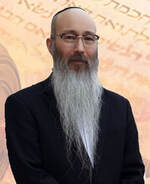|
By: HaRav Menashe Sasson Reporting from Jerusalem, Israel Published in the U.S.A. There are a number of laws distributed throughout Parasha Ki Teza which, on their face, may not seem to have any readily apparent connection. Those laws include:
The unifying theme that can be discerned from these pesukim from Parasha Ki Teze is that the Torah has a preference for – and indeed presumes – the private ownership of property. The next logical question, of course, is: What is implied by the Torah’s preference for the private ownership of property? Ownership of property, by definition, means the legal right of an individual, without interference from others, to use or dispose of property which is owned by that individual, provided that such use or disposition does not infringe on another person’s legal rights with respect to that person’s property. This definition, of course, is consistent with the command “Thou shalt not steal” [לא תגנב]. Shemot 20:13. The Torah prohibition against stealing is absolute. The prohibition is not limited to individuals who commit theft, but rather, applies to both individuals and to groups consisting of more than one individual. The fact that the Torah prohibits stealing leads, logically, to the question: How may property be acquired without violating the prohibition against theft? There are two, and only two, methods in which property may be acquired. The first is through a voluntary act – a sale or a gift. The second is through the use of force or the threat of force. There is no material difference whether the force needed to acquire property is applied by a common street criminal or by the State, under an illusion of legitimacy which the State attempts to create through the enactment of laws. When a State takes property from a person by force or the threat of force, that taking constitutes theft, if the property which is taken is used for any purpose other than to achieve the legitimate ends of government. Although reasonable minds might differ as to what constitutes a legitimate end of government, it must be remembered that any and all property acquired by the State is acquired through the use, or threatened use, of force. Just as there are two, and only two, methods in which property may be acquired, there are two, and only two types of economic systems: the free market, the foundation of which is voluntary exchange, and Socialism, the foundation of which is the use, or threatened use, force. Thus, we see that just as the acquisition of property by way of voluntary transaction or by force are polar opposites, so too, the free market and Socialism are polar opposites. Rabbi Akiva Tatz wrote that “[f]ree will defines the human being. The human is a reflection of the Divine; just as [HaShem] acts autonomously, we are free to express ourselves autonomously. That is not true of other created beings. . . . Only humans are free to choose what they do.” Akiva Tatz, Will, Freedom and Destiny: Free Will in Judaism, p. 15. In other words, an economic system which is based on free will – voluntary exchange – is a system which is consistent with Torah, and any system which is based on force or the threat of force, is a system which is inconsistent with Torah. Medinat Yisra’el (the State of Israel) was founded in 1948 by Socialists. One of the fundamental tenants of Socialism is a rejection of G-d. According to Socialist doctrine, everything, including G-d and religion, must be subordinate to the State. Not surprisingly, Medinat Yisra’el, in its early years, was an openly Socialist state. Consistent with Socialist principles, the State regulated almost every aspect of the economy, including the monetary system. During the years 1978-1979, inflation, caused by the Israeli government’s manipulation of the money supply, averaged 77 percent. By 1984-1985, inflation peaked at 450 percent! U.S. president Ronald Reagan offered Medinat Yisra’el a $1.5 billon grant if Medinat Yisra’el would abandon Socialism and adopt free-market economic principles. The Histadrut, Medinat Yisra’el’s labor union, objected. U.S. Secretary of State George Schultz responded with the threat that if Medinat Yisra’el did not start implementing free-market economic policies, the United States would freeze all monetary transfers to Medinat Yisra’el. The threat worked. Medinat Yisra’el started to implement free-market “recommendations” that had been made by the Reagan Administration. The impact on the Israeli economy was immediate and dramatic. Within one year, inflation fell from 450 percent to 20 percent. Although the economy in Medinat Yisra’el is much better now than it was in the 1980s, there is still much work to be done. Problems which still exist in the Israeli economy include:
The change from a non-Torah (Socialist) economy to an economy which is consistent with Torah began in the late 1980s, with a little help from the Reagan Administration. Much, however, still needs to be done to change the secular, Socialist government of Medinat Yisra’el to one which is based on, and follows, Torah principles, including the free-market principles which we find in Parasha Ki Teze. One way to effect a change from a State which is not based on Torah principles to one which is based on those principles is through the mass Aliyah of religious Jews who not only understand, but also embrace, the free-market principles which we find in Tanakh and Talmud. May we all merit to being a part of the process of importing Torah into the government of our beloved Eretz Yisra’el. שבת שלום Shabbat Shalom! Copyright © The Israel Foundation. All Rights Reserved.
0 Comments
Your comment will be posted after it is approved.
Leave a Reply. |
THE ISRAEL FOUNDATION





